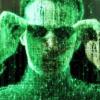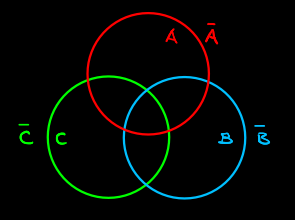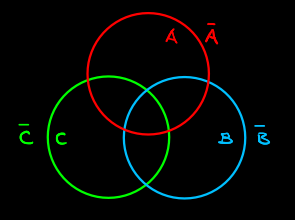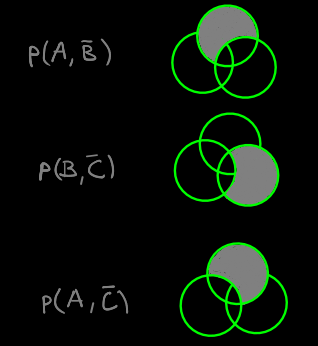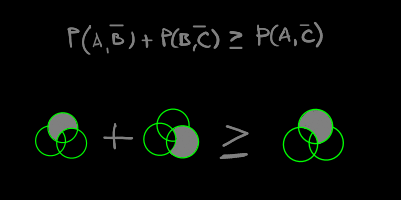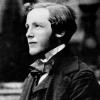Leaderboard
Popular Content
Showing content with the highest reputation on 09/10/22 in all areas
-
I have read that Blackholes have properties Mass, Charge and Angular Momentum, and that the Event Horizon is the boundary between where spacetime is curved so much that all paths converge, and between where there are some paths that could diverge. Putting aside Hawking Radiation, apparently "nothing?" can leave the EH. As far as I understand, the "nothing" refers to anything with mass and any form of electromagnetism such as light, and perhaps categories of other things. So if electromagnetic waves cannot exit the EH, how does the charge of the Blackhole create the electromagnetic effect that propagates around the black hole due to that charge? Likewise with mass and curvature, how does the density of the mass "inside" the black hole's EH manage to curve the space time outside the EH, if the EH is a boundary where all paths converge? If you were a bit mass under the EH, and you tried to emit your gravitational wave through the EH, that wave would have a geodesic that remains within the EH. If that wave never exits the EH, and if ALL waves never exit the EH, what is causing the gravitational effect of the blackhole as experienced by objects outside the EH?1 point
-
So many incisive posts! Will just add that, per Peterkin's mention of the negative effects of political parties especially on national assemblies, that the founders were much opposed to parties. Time has certainly buttressed their objections in many ways. Thomas Jefferson on the matter: George Washington also weighed in, in his Farewell Address, and held nothing back... I almost want a phrase stronger than "nailed it!" for President George. A crystal ball, that man had!1 point
-
It is correct to describe classical gloves, the gloves we are familiar with. Exactly. It's not a property of ordinary gloves to be in a state that's neither left-handed, nor right-handed, but in a quantum superposition of both. That's what ordinary gloves can't do. A system that did this --hypothetically or actually--, as you well know, is called a Schrödinger cat. People call Schrödinger cats other kind of systems that are macroscopic, but keep quantum coherence. But I think there's a slight shift in meaning there, because ordinary cats (which are always either dead or alive) don't keep quantum coherence. Exactly. That was Bell's point in is paper Bertlemann's Sockets and the Nature of Reality. The point being: You don't need information transfer at a distance in order to have perfect distant correlations. You only need to prepare the system with those correlations built in. In what sense are you using the word "box"? In science people talk about a black box when there's some internal mechanism we can't see, or we don't care about, except for its input/output workings. You could call the evolution of the wave function a "black box" if you want. It all depends on what you mean by a "black box". When I said: what I meant is: You can't reproduce quantum behaviour by means of any classical and local internal switches, so to speak, that do the trick. For example, MigL's gloves is a perfect example that illustrates that there doesn't have to be anything funny (non-local, superluminal) going on with one classical observable (handedness of a glove) and a pair of classical (non-quantum) systems (the gloves). John Bell provided a similar example that he called "Bertlemann's socks": One is pink, the other is green, or so I remember. What it illustrates is that perfect anti-correlation, or correlation between two distant things is not the problem. The problem with quantum systems is evidenced when you consider at least 3 observables. And not just any observables; you have to pick them cleverly. Otherwise, you fall back to a range of variables where the classical explanation could work. So let's make a pair of "quantum gloves." Handedness: When one is R-handed, the other is L-handed Colour: When one is B (black) the other is W (white) Material: When one is N (nylon) the other is F (felt) Whenever you take a look, the gloves are either RH or LH, either B or W, either N or F. But you're only allowed to take a look at any one of these properties at a time. All of this happens only upon observation. If the system's not being observed, the quantum state allows you to be in so-called superposition states, in which the system is neither totally RH, nor totally LH, etc. ---------------------- Bell's Theorem Bell's theorem is a very simple constriction on the probabilities of three independent assertions that are subject to classical logic (at all times, they're either true or not true.) A: Possible outcomes: A is true | A is not true B: Possible outcomes: B is true | B is not true 😄 Possible outcomes: C is true | C is not true We can represent these outcomes as A, and A with a bar on top, etc. Like this: The probability of A being true is the interior of the red circle. A not being true is the exterior. Etc. Now, it's pretty clear (in images) that, p(A,B-bar) being "probability of A being true and B being not true, etc., and, next to obvious* that, This is what, quite "simply" quantum mechanics doesn't obey. There is this interesting case: A = "the x projection of the particle's spin is up" (not A, or A-bar is read by substituting "is up" for "is down", etc. B = "the y projection of the particle's spin is up", etc. C = "the projection of the particle's spin along a direction 45º with respect to both x and y is up". Then you use some so-called sigma-matrix algebra and voilá, Bell's theorem is violated. Experiments, BTW, confirm this within detector-noise tolerances. It's been checked upwards and backwards. What's wrong? Nothing's wrong. It's simply not true that propositions A, B, and C all have a definite answer, true or not true while the system is evolving. It's all withing the very simple, transparent box of quantum mechanics. The tricky thing is "what happens to the quantum vectors when I perform a measurement?" But that's another story. *Actually, not that obvious from the picture. I have a better proof elsewhere.1 point
-
No it isn't correct because the gloves would need to be in an undefined state while in the boxes. But correct enough to illustrate that there is no information transfer, superluminal or otherwise.1 point
-
The black box is in the mathematics of quantum mechanics. A particle can give you binary (up or down) projections of spin along any direction in a continuum of possible directions. So you would think, aha! the spin must be lying along some of these directions pointing in a certain way (up or down). If you assume this kind of classical logic, as Gell-Mann says, you're gonna have to conclude that there are negative probabilities, or instantaneous communication (non-locality), or both. None of that happens. What happens is quantum mechanics. Bell's theorem is a proof that whenever you have 3 propositions that are either true or not true (classical logic), eg: A, not A B, not B C, not C then the probabilities satisfy the following constraint: probability(A,not B)+probability(B,not C) is greater or equal to probability(A,not C) Bell found a set of propositions that violate this constraint according to quantum mechanics. So it's not that anything travels faster than light. It's just that it's simply not true that some propositions are either true or false. This condition, if you will, "that something that could be true (has non-zero probability of happening) has become true" cannot be made into a signal. Think how delicately all depends on the results being actually random: If Alice could decide what the outcome is going to be, her sequence of up, down, up, up, etc. would be read by Bob as the negative image of the message: down, up, down, down, etc.1 point
-
What it does mean in each country is a product of that country's history. No nation-state, including the USA, which puff-prides itself on the pretense, invented itself from a clean slate on a principle. Modern nations are more like ancient houses, many times damaged by fire and war and flood, patched up, renovated, added-on, adapted over many generations. Their forms of government contain all of that history, as do their laws and cultures and social strata. It's fashionable in the 20th+ century to call one's form of government democratic, whether it actually involves the majority of the population or not: formulas are observed, speeches are made, assemblies are held, motions are gone-through. As long as the theory and form exist, there is a potential for reform in the direction of true democracy. What it should mean, everywhere, is that the interest of every citizen, regardless of their station in life or the esteem in which their society holds them, is represented in the administration of the government, in the application of its laws, in the rendering of social services, in access to resources and infrastructure, in rights and responsibilities and contribution. The means and methods and mechanisms may vary, but the principle shouldn't.1 point
-
I just try to be a better person today than I was yesterday. That's the key to my success... ...setting the bar low1 point
-
I think my grandfather-- who was a well-educated and thoughtful man, had it worked out.. When my Father graduated from college, my grandfather sent him a handwritten note with the following message: "Wishing you throughout the years, a fullness of happiness, a diligent pursuit of purpose and a life of fruitful accomplishments (June, 1941)1 point
-
Ooh, my Groucho-purpose-of-life is to learn everything you can. "Outside of a dog, a book is man's best friend. Inside of a dog, it's too dark to read."1 point





